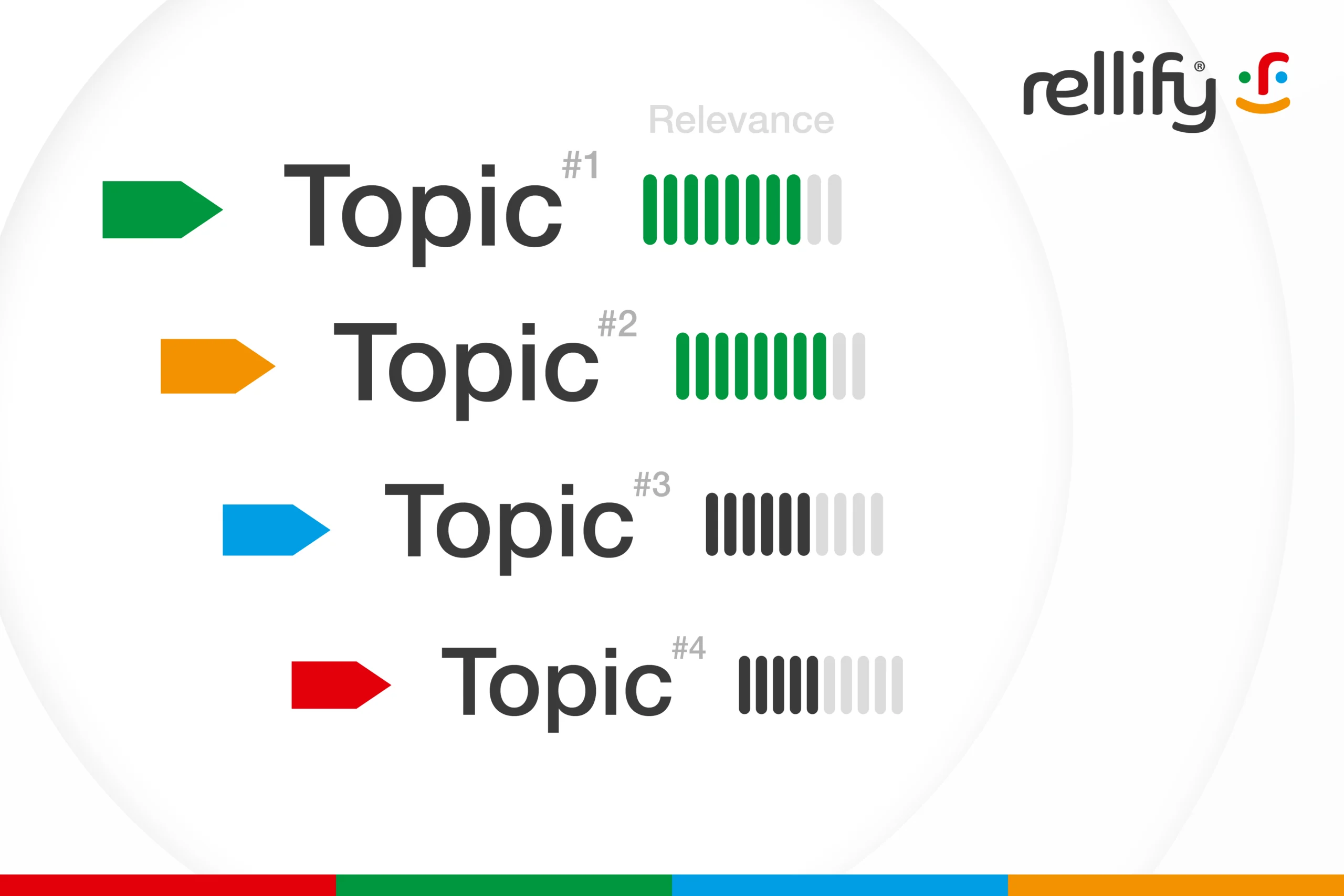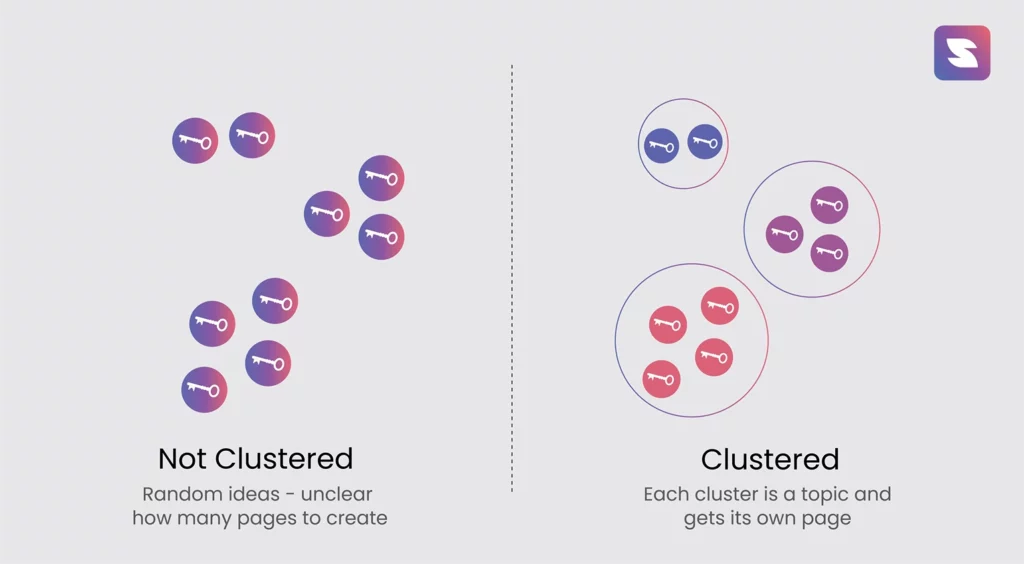
Are you tired of manually sorting through keywords for your SEO strategy? AI keyword clusters can streamline this process effectively. By leveraging advanced algorithms, AI tools categorize keywords based on semantic relationships and user intent, enhancing your SEO clustering efforts and saving valuable time. This pivotal shift in how keywords are organized lays the groundwork for more effective content strategies and improved organic traffic.
Understanding AI Keyword Clusters
AI keyword clustering involves grouping keywords that share similar meanings or search intents. This method enables SEO specialists to:
- Enhance content relevancy
- Improve site architecture
- Boost organic search visibility
The outcome of using AI in this context includes a holistic view of themes and subtopics for your content strategy.
Benefits of Using SEO Clustering Tools
Implementing keyword clustering AI can yield significant benefits:
- Efficiency: Reduces manual sorting time by over 80%.
- Accuracy: Clusters keywords based on context and intent.
- Holistic Strategies: Facilitates the creation of topic clusters that link back to pillar pages.
By integrating these tools into your workflow, you’ll not only save time but also enhance the overall quality of your SEO approach. For more about effective clustering strategies, visit our article on AI SEO Automation Benefits.
Top AI Tools for Keyword Grouping
Some of the leading AI clustering tools include:
- Keyword Insights
- Surfer AI
- SEO.ai
- Moonlit
Each platform leverages machine learning to provide a structured approach to managing keywords, ensuring your focus remains on high-value tasks.
Structuring Your Content with Keyword Clusters
Once you’ve built your keyword clusters, structuring your content is paramount. Consider the following:
- Create pillar pages that serve as comprehensive resources on key topics.
- Link supporting articles to these pillar pages for improved navigation.
This strategy not only boosts your site’s thematic authority but also enhances user navigation. For detailed insights, check out our previous post on Supporting Remote Technologies.
Future Trends in Semantic SEO
The role of AI in keyword clustering will continue to evolve. Here are some trends to watch:
- Generative AI: Tools will begin recommending content based on emerging trends.
- End-to-end automation: Expect automation in creating complete topical maps and content calendars.
- Proactive modeling: Future systems will predict emerging keyword trends.

Utilizing AI keyword clusters is essential for professionals aiming to enhance their SEO strategies. Adopting these methods opens the door to innovative approaches in search optimization.
In conclusion, the importance of integrating AI keyword clusters into your SEO practices cannot be overstated. By understanding their capabilities and potential, you can refine your strategies to meet evolving search behaviors while maximizing organic results.
Ready to embrace AI keyword clusters in your SEO practices? Share your thoughts in the comments below or let us know what strategies you’re using!
FAQ
What are AI keyword clusters?
AI keyword clusters are groups of keywords organized based on their semantic relationships and search intent, aimed at optimizing SEO strategies.
How can I implement keyword grouping AI in my SEO strategy?
Integrate AI tools that specialize in keyword clustering to analyze lists and generate structured groups that align with user intent.
What are the benefits of keyword clustering for SEO?
The benefits include enhanced content relevancy, improved site architecture, and increased organic traffic.
Are there specific tools for SEO clustering?
Yes, top tools like Surfer AI, Keyword Insights, and SEO.ai are leading the way in providing effective clustering solutions.
How does semantic SEO relate to AI keyword clusters?
Semantic SEO focuses on the context of content, making AI keyword clusters essential for creating relevant and authoritative content structures.
For further exploration of AI keyword clusters and other useful tools, click here.


